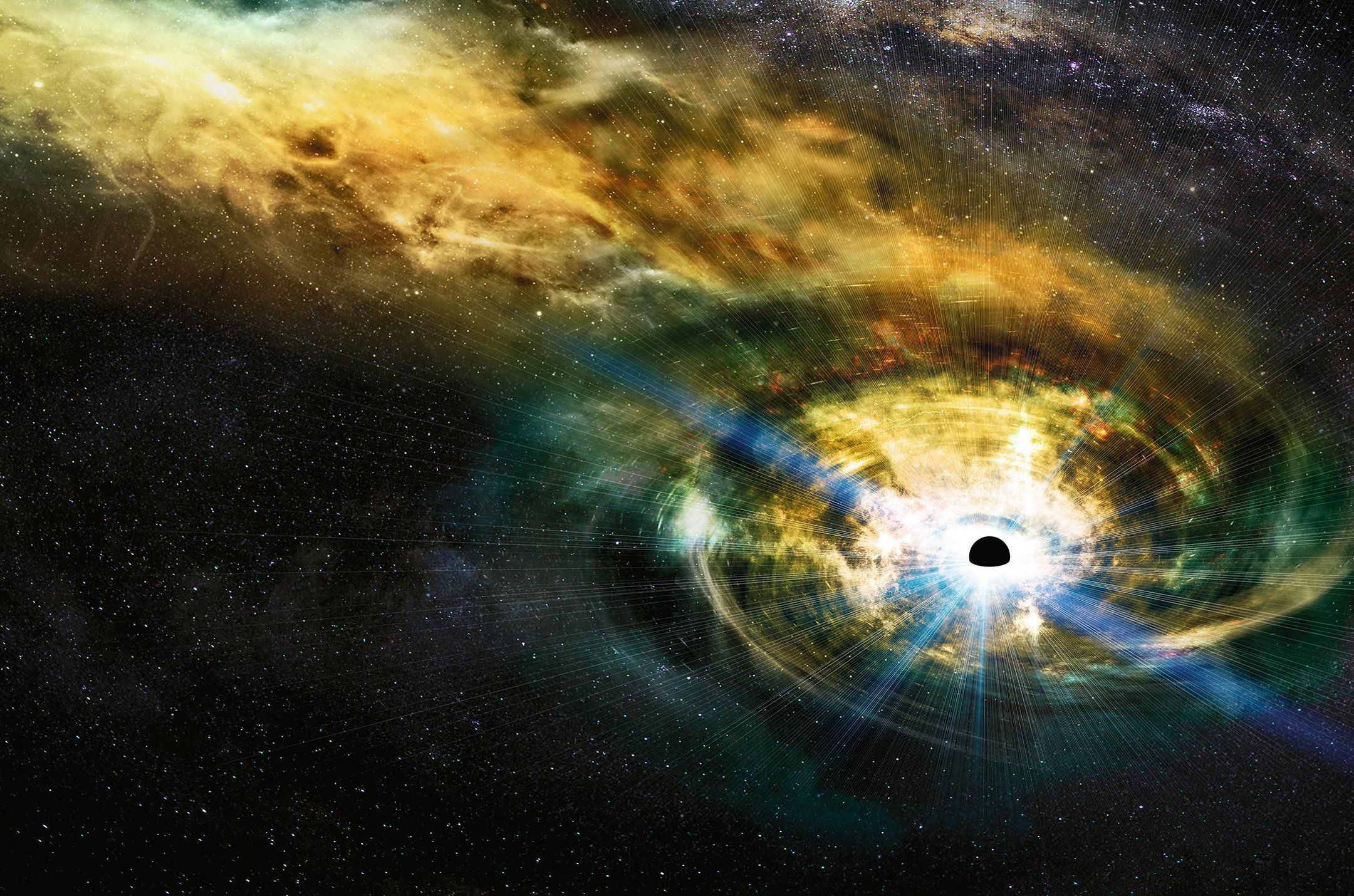The European Southern Observatory (ESO) and the Event Horizon Telescope (EHT) project will hold a global press conference on May 12 to reveal new discoveries about the center of the Milky Way. This international collaboration of radio telescopes and the Event Horizon Telescope observatories is primarily intended to capture the first image of a Black hole. This has been done since 2019, when astronomers released the first-ever direct image of a black hole’s event horizon. galaxy Elliptical giant M87. Likewise, at the press conference scheduled for May 12, the historic revelation of the central black hole of our galaxy is expected, Sagittarius A*.
EHT is a virtual telescope (network of telescopes) with a diameter of 10,000 km. The larger the telescope, the more details it can capture. However, it is not a unique telescope! In fact, it may then collapse under its own weight … The Event Horizon Telescope covers a large part of the globe thanks to a set of numerous observatories scattered all over the planet. In doing so it combines the 30-meter IRAM (International Institute of Radio Astronomy) telescope in Europe, the ALMA radio telescope in Chile (co-managed by Europe, the United States and Japan) as well as the existing structures in the United States. Hawaii and Antarctica.
Despite this deployment of technologies, we have yet to get an image of a ‘real’ black hole, even if the EHT teams revealed High quality picture in 2019. In fact, this type of astronomical object has the main characteristic of being so massive that nothing can escape from it, not even light. What scientists have been trying to observe for years is what’s around the black hole, the “accumulation disk.” It is a substance and gas that circulates around the core of the body at a very high speed, heated to extreme temperatures. Of course, they end up being devoured by the black hole.
Given that project scientists will hold simultaneous press conferences around the world on May 12, we can conclude that their announcement will most likely be groundbreaking and may relate to the first image of the supermassive black hole at the center of the planet. Milky Way, the name of the thing Sagittarius A*.
two goals
For EHT, the arc note A* and M87 * It requires good weather conditions in all eight locations simultaneously. Arch A* was the project’s first two targets. The object is located at 26000 light years From Earth, in the heart of our galaxy. Its mass is 4.3 million times the mass of the Sun, which is relatively low for a supermassive black hole. The second target is the black hole of the galaxy M87, which is much larger and located much further away.
Despite this, it was the M87 that provided the first exploitable results. In fact, Sgr A* is obscured by a cloud of dust and gas, making it particularly difficult to study. The image of the M87 looks a bit like a fuzzy orange patch. In the middle is the “shadow” of the black hole, appearing as a dark region. So we don’t actually see the black hole, because its gravity prevents any detectable radiation from escaping. Experts compare taking a live image of the M87* to observing an object 1 millimeter in size at a distance of 13,000 km.
Note that the data produced by this monitoring network is so large, that the transfer of all data sets was done by an entire box of hard disks. In addition, not all data can be accessed simultaneously. In fact, the Antarctic telescope is isolated half a year. Either way, we’ll have to wait until May 12 to find out what the EHT has noticed about Sgr A* and what the scientists have concluded.
Multiple Distribution Channels for Leading Advertising
However, the ESO press release promises something “revolutionary”. This is the term already used to announce the first live image of a black hole in 2019. The conference will be broadcast online on the ESO website and on ESO’s YouTube channel on May 12, 2022 at 3:00 PM CEST (3:00 PM EST). French). Simultaneous press conferences will be held worldwide, including in Washington, D.C., Santiago de Chile, Mexico City, Tokyo, and Taipei. The press releases will include important audiovisual material, enough to make us dream!
And as far as ESO is concerned, the conference will be held at the headquarters in Germany. The Director General of ESO will deliver the keynote address. Huib Jan van Langevelde, EHT Project Manager, and Anton Zensus, Founding Chair of the EHT Collaboration Council will also deliver keynote speeches. A panel of EHT researchers will explain the finding and answer questions. The lectures will be followed by a YouTube event with several expert EHT astronomers, for the audience, such as a question-and-answer session.
source : ESO

“Professional food nerd. Internet scholar. Typical bacon buff. Passionate creator.”





